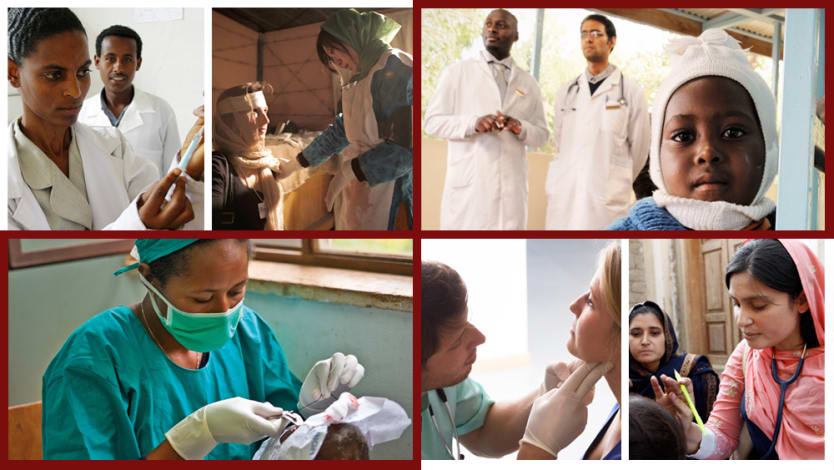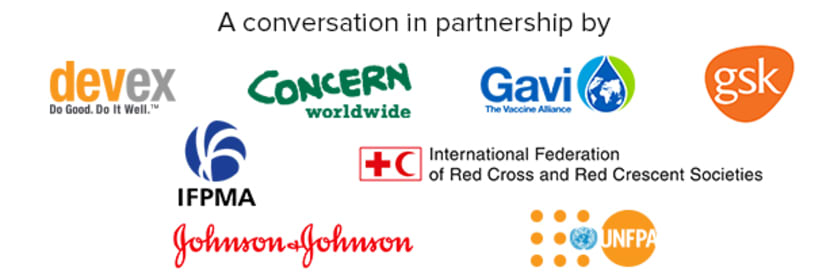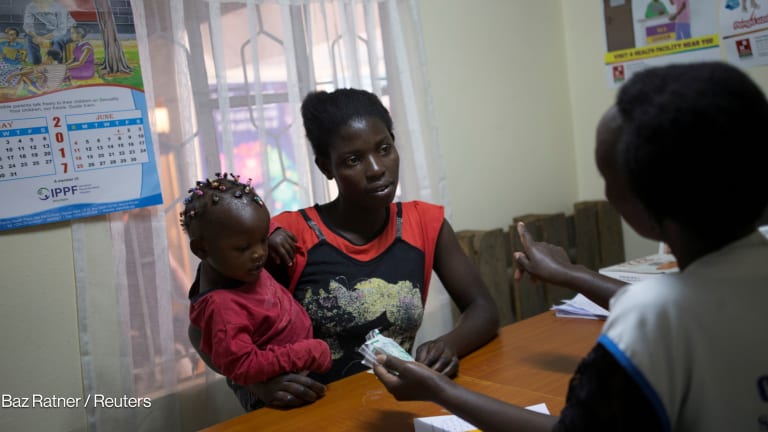What does healthy mean to you? A new campaign examines the future of global health

Global health rarely grabs headlines. But when it does, it’s with a vengeance — and often, an unfortunate amount of hysteria. Think Ebola, SARS, bird flu, and just a few decades ago, HIV. The fight against diseases like AIDS, malaria and polio has similarly suffered from misinformation and at least initially, a lack of leadership and funding.
Yet global health is about more than the breathless race from one crisis to another. It’s about the work that’s being done every day, behind the scenes, by a multitude of actors — community health workers and doctors, medical researchers and epidemiologists, politicians and activists, government officials and aid workers, corporate leaders and tech wizards.
They, and many others, are working on the front lines of a battle that is as tough as they come: the improvement of the health and well-being of every human on this planet.
The past few decades have seen spectacular progress. Life expectancy has risen dramatically, infant mortality has dropped. At the same time, maternal mortality remains high in the developing world and access to care in rural areas low. Persistent poverty and population growth, conflict and climate change threaten the substantial gains we’ve seen in global health.
The international community is at a critical juncture. The spread of disease has never been easier in today’s globalized world, where a person infected with Ebola can easily travel from West Africa to the United States or Spain before showing symptoms of the disease. But the same reach applies to technological advances from mobile health to cutting-edge data analysis and diagnostic tools, which facilitate the expansion of care to the most remote corners of the world.
The Millennium Development Goals — and a follow-on set of global targets that are expected to be finalized next year — have galvanized attention and compelled world leaders to act. The private sector has come to see a business value in doing good, and a growing number of cross-sector partnerships tackle the complex intersection of animal and human health and a variety of other factors, from nutrition to urban planning and environmental stewardship.

There are plenty of ideas to finance, expand and improve health care — from generating new funds through impact investing to expanding access to care through telemedicine and improving the availability of drugs through pledge guarantees by financial institutions and international donors like the Bill & Melinda Gates Foundation.
Often, there are tradeoffs. The U.S. government’s sharpening focus on two global health priorities — reducing below-5 mortality and achieving an AIDS-free generation — may come at the expense of other efforts, for instance. The ongoing Ebola crisis may have mainstreamed the debate about the need to strengthen health systems — but that may downplay the other reason for Nigeria’s ability to contain the virus: political leadership and, more specifically, the science-based decision to isolate all human waste of Ebola patients.
International institutions play an important role in advancing global health. Yet many of them struggle to realize their full potential. Organizations that have traditionally been focused on specific diseases, like the Global Fund to Fight AIDS, Tuberculosis and Malaria, may need to abandon silo thinking to facilitate lasting systemic change. The World Health Organization should review how its financing structure affects its ability to respond to emergencies and drive global health efforts. Pretty much every global health group could do more to tap into big data to track and respond to health needs.
“If ever there was a case for using more of our government aid money to build efficient, smart and reliable comprehensive health systems in countries that don’t have them, this is it,” Bill Clinton, the former U.S. president and founder of the Bill, Hillary & Chelsea Clinton Foundation, said recently about the Ebola outbreak in Guinea, Liberia and Sierra Leone.
Those systems will surely be put to the test as noncommunicable diseases become more prevalent and new health scares emerge — like the Marburg virus, which killed a health worker in Uganda last month.
What does a comprehensive health system entail? The answer will vary depending on who you ask. But more likely than not, it’ll be built on strong supply chains and partnerships, capacity building and good governance. It will encourage innovation and the prevention of disease. And it is inclusive — by guaranteeing universal access to at least basic care.
At the end of it all, it puts the individual — us — at the center so we can live better and longer lives.
Over the coming weeks, Devex will explore ways to advance global health in a campaign we call Healthy Means. Stay tuned for more cutting-edge solutions and thought-provoking commentary, and don’t forget to join the conversation!
Want to learn more? Check out the Healthy Means campaign site and tweet us using #HealthyMeans.
Healthy Means is an online conversation hosted by Devex in partnership with Concern Worldwide, Gavi, GlaxoSmithKline, International Federation of Pharmaceutical Manufacturers & Associations, International Federation of Red Cross and Red Crescent Societies, Johnson & Johnson and the United Nations Population Fund to showcase new ideas and ways we can work together to expand health care and live better lives.
Search for articles
Most Read
- 1
- 2
- 3
- 4
- 5








